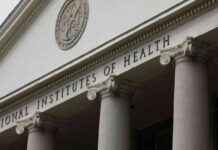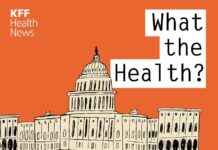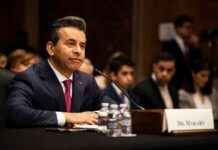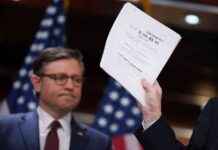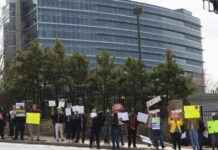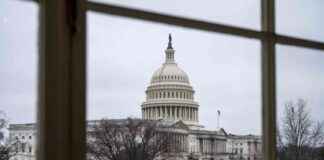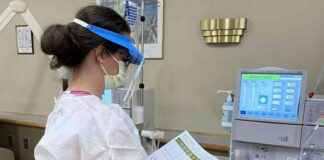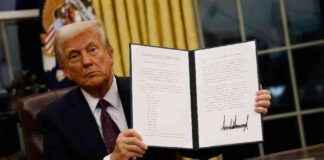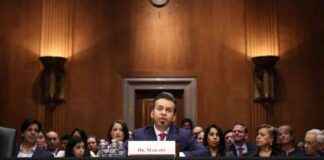Two Harvard Medical Physicians File Lawsuit Against Trump Administration Over LGBTQ Article Removal
In a groundbreaking move, two esteemed physicians from Harvard Medical School, Gordon Schiff and Celeste Royce, have taken legal action against the Trump administration. The lawsuit arises from the removal of two crucial research papers from the Patient Safety Network (PSNet), a platform managed by the Agency for Healthcare Research and Quality under the Department of Health and Human Services.
The contentious issue at hand revolves around the inclusion of terms such as “LGBTQ” and “trans(gender)” in the articles, which were deemed inappropriate by the government. This bold move has sparked a fierce debate over the boundaries of freedom of speech in academic and medical research.
### The Legal Battle Unfolds
Represented by the American Civil Liberties Union Massachusetts and the Media Freedom and Information Access Clinic at Yale Law School, Schiff and Royce are challenging the government’s authority to censor scientific discourse. Rachel Davidson, a staff attorney at ACLU Massachusetts, emphasizes that the government should not dictate the permissible facts or views that researchers, academics, and doctors can express. This bold stance underscores the researchers’ commitment to upholding the principles of the First Amendment.
### Implications for Patient Safety and Healthcare
The removed articles shed light on critical issues affecting patient care. An article discussing endometriosis diagnosis highlighted the importance of recognizing the condition in transgender and non-genderconforming individuals. Another piece focused on assessing suicide risk in vulnerable populations, including LGBTQ individuals. The erasure of such valuable insights raises concerns about the impact on patient safety and healthcare outcomes.
The controversy escalated when Patrick Romano, co-editor in chief of PSNet, cited White House policy on “gender ideology” as the basis for removing the articles. This decision, prompted by an executive order and subsequent memo from the Office of Personnel Management, has ignited a legal showdown between the physicians and federal agencies.
### Legal and Ethical Dilemmas
Legal experts anticipate a fierce legal battle over the classification of PSNet postings as either a “limited public forum” or “government speech.” Steven Collis, a First Amendment law professor, underscores the complexity of the case, emphasizing the government’s potential use of “time, place, and manner restrictions” to justify its actions. The crux of the matter lies in determining whether PSNet constitutes a platform for public discourse or a conduit for government messaging.
In addition to the freedom of speech argument, the plaintiffs are invoking the Administrative Procedure Act to challenge the administration’s actions as “arbitrary and capricious.” This regulatory framework governs how federal agencies enact changes and regulations, underscoring the need for transparent and thoughtful decision-making in matters of public interest.
### A Call to Action for the Scientific Community
The lawsuit against the Trump administration marks a pivotal moment for researchers seeking to defend academic freedom and scientific integrity. By challenging the government’s censorship of critical research, Schiff and Royce are paving the way for future advocacy in the medical and academic spheres. The broader implications of this case extend beyond the LGBTQ community, affecting the entire medical landscape and the pursuit of equitable healthcare for all individuals.
As the legal battle unfolds, the outcome of this case may set a precedent for researchers confronting similar challenges in an era of heightened political scrutiny. The voices of Schiff and Royce resonate not only in defense of LGBTQ rights but also in defense of academic autonomy and the pursuit of knowledge for the betterment of society.
The response from the HHS Office of Public Affairs underscores the gravity of the situation, highlighting the need for a nuanced and informed dialogue on issues at the intersection of healthcare, politics, and civil liberties. As the legal proceedings continue, the impact of this lawsuit on patient safety, academic freedom, and public discourse remains a focal point of national attention.
This ongoing saga serves as a poignant reminder of the enduring struggle for intellectual freedom and scientific inquiry in the face of political pressures. The resilience of Schiff and Royce echoes the sentiments of countless researchers and healthcare professionals dedicated to advancing knowledge and promoting inclusivity in the ever-evolving landscape of medicine and public health.

